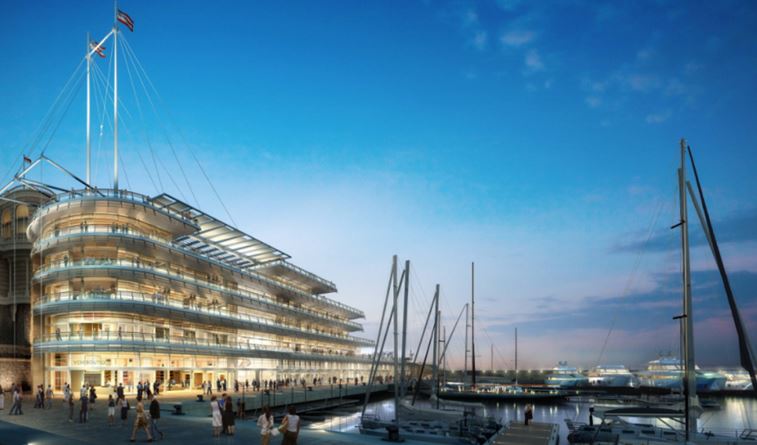A.W. Hooker & Infrastructure Projects at a Glance
The Canadian Chamber of Commerce report published in 2013 states that the Canadian infrastructure deficit is in the range of $50 billion to $570 billion. A truly massive range, however, there are many pertinent variables that factor into this result! Although we don’t know the methodology of this study, let’s make an assumption for the sake of understanding our need of infrastructure investments for Canada’s future prosperity and the quality life of future generations. Let’s assume that we need infrastructure investment in between these two numbers. This assumption tells us that our deficit for Canadian infrastructure is around $300 billion.
The Canadian Federal Government announced in their 2016 Budget a $120 billion investment in public infrastructure over the next 10 years. If our assumption above is correct this will deal with a sizable part of the infrastructure deficit, but still leave a greater and growing deficit for future years. Meanwhile, the government’s budget deficit for the 2016 fiscal year is estimated around $30 billion. It is reasonable to expect that the government budget deficit will increase in years ahead due to the need to invest in our infrastructure, even though the global economy is facing challenging conditions and a variety of crises. We need to invest not only in aging infrastructure but also new infrastructure to accommodate population increases, environmental needs and evolving technologies.
 Now we understand the big picture in regards to infrastructure investment in Canada. On one side, we have the infrastructure deficit and on the other side we have budget deficit. So what is the solution? Stop investing money in infrastructure or increase taxes? These are both poor choices and in reality a no-go. The best thing to do to meet the demand of renewing and expanding infrastructure is spending the tax payers’ money in the most cost effective way possible.
Now we understand the big picture in regards to infrastructure investment in Canada. On one side, we have the infrastructure deficit and on the other side we have budget deficit. So what is the solution? Stop investing money in infrastructure or increase taxes? These are both poor choices and in reality a no-go. The best thing to do to meet the demand of renewing and expanding infrastructure is spending the tax payers’ money in the most cost effective way possible.
There are three levels of government in Canada – Federal, Provincial and Municipal. All three levels work really hard to spend their money on infrastructure wisely. Meanwhile, engineering and design consultants are putting more focus on keeping their projects within budget and to provide best value for the money spent. So, what is the role of Professional Quantity Surveyor (PQS) in this picture?
Over the 50 year history of Professional Quantity Surveyors (PQS) in Canada, our professional contribution to the construction industry has been well recognized by various parties such as governmental agencies, architects, investors, bankers and so forth. However, there is progress to be made in terms of introducing our skills, capabilities and contributions to engineering companies and agencies which do not yet recognise the value of a PQS on their project teams.
It is great that the majority of governmental agencies recognize the positive role of PQS in infrastructure projects. Over the last few years, we have increasingly seen that issued RFP’s or RQQ’s require an independent PQS as a member of the design team. This is very good news! Now, the better news is that A.W. Hooker has been steadily accumulating valuable experience providing cost management services on these infrastructure projects.
We at A.W. Hooker are proud of our involvement with major past and current infrastructure projects. In addition to a long string of on-budget tender results and pleased clients, we have received very positive feedback from a number of engineering companies about our contribution to the success of their projects.
So the question is: “What added value do we bring to the table for agencies and engineering companies?”
- Independent Perspective – No Conflict of Interest,
- Professional Budget Planning and Cost Control,
- Risk Analysis and Management,
- Value Analysis / Value Engineering,
- Parallel Estimating / Peer Review,
- Life Cycle Costing,
- Tender Support including Tender Addendum Support, Tender Analysis,
- Project Monitoring, Change Order Review, Claims Review,
- Dispute / Litigation Resolution, and
- Fewer headaches for Consulting Engineers and the client Agencies.
Did you know that we are currently involved with major infrastructure projects such as station upgrades, train storage and maintenance facilities, expanding rail corridors, bridges, water mains, sewer mains, storm water management, and water treatment facilities?
Our in-house civil, mechanical and electrical PQS’s are highly experienced with infrastructure projects. We would be thrilled to become involved with future infrastructure projects!
For more information in regards to our services, please contact us.

